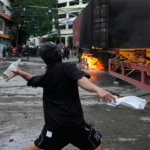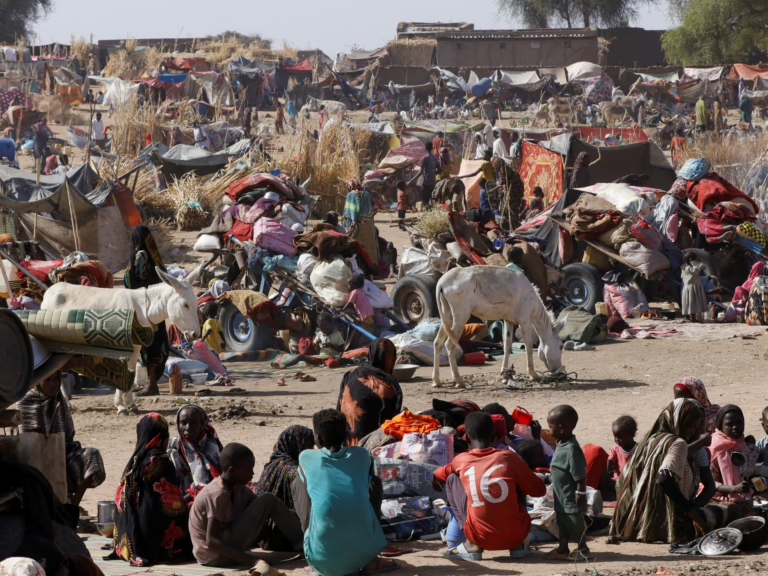In response to a devastating drone strike that claimed the lives of over 70 worshippers in el-Fasher, the United Nations Secretary-General has urgently called for an immediate halt to hostilities in Sudan’s Darfur region. Antonio Guterres expressed deep concern over the rapidly worsening crisis in the area.
“The violence must cease without delay,” Guterres emphasized in a statement released by his spokesperson on Saturday. He urged all conflicting parties to initiate meaningful dialogue and establish safe humanitarian corridors amid the ongoing brutal civil war that has engulfed Sudan for three years.
“It is imperative that the factions return to negotiations to forge a lasting resolution to this conflict,” he added.
El-Fasher, the administrative center of North Darfur, remains the final significant bastion held by the Sudanese Armed Forces (SAF) and their allies in the region. For over a year, the city has been under siege by the paramilitary Rapid Support Forces (RSF), which intensified their offensive in recent weeks aiming to seize control.
Humanitarian agencies have sounded alarms over escalating food insecurity in el-Fasher, where hundreds of thousands are trapped without access to vital supplies such as food and medicine.
The United Nations has described Sudan’s humanitarian crisis as the most severe globally, with thousands killed and millions displaced nationwide. Since 2023, the SAF and RSF have been locked in a devastating conflict that has shattered the country.
Many civilians fleeing el-Fasher have reported attacks by RSF forces en route to refugee camps. UNICEF estimated in late August that approximately 600,000 people have been displaced from the city.
The recent drone strike on Friday targeted worshippers during dawn prayers at Al-Safiya Mosque, killing more than 70 individuals, including children. The Sudanese military condemned the RSF for this “horrific crime,” reporting a death toll of 75 and numerous others displaced.
Al Jazeera correspondent Hiba Morgan, reporting from Khartoum, described the day as one of the bloodiest since the RSF began their siege in May of the previous year.
“Repeated RSF attacks have struck civilian infrastructure, including hospitals, schools, and displacement centers,” she reported.
Sudan’s Prime Minister, Kamil Idris, announced plans to highlight the dire situation in el-Fasher during the upcoming UN General Assembly session in New York, where global leaders are convening for the 80th assembly.
The assault also damaged a UNICEF-supported water truck. UNICEF Executive Director Catherine Russell called for urgent protection of children, while the UN Office for the Coordination of Humanitarian Affairs (OCHA) condemned the attack as “unacceptable,” urging respect for international humanitarian law and the safety of aid workers.
African Union Chairperson Mahmoud Ali Youssouf denounced the drone strike as a “heinous act” and a blatant breach of international law.
This attack coincided with the release of a UN report highlighting escalating summary executions, civilian targeting, and ethnic violence across Sudan, with Darfur being particularly affected.
The report detailed persistent patterns during the first half of 2025, including widespread sexual violence, indiscriminate assaults, and retaliatory attacks against civilians, often based on ethnic lines and accusations of collaboration with opposing factions.
According to the report, 3,384 civilians were killed in the first six months of the year, though the actual figure is likely higher due to challenges in gathering accurate data on the ground.
By the end of August, UNICEF documented 1,100 serious violations in el-Fasher alone, including the maiming of over 1,000 children, with many others abducted or forcibly recruited into armed groups.
In July, the International Criminal Court (ICC) informed the UN Security Council that evidence suggests war crimes and crimes against humanity are ongoing in Darfur.
ICC prosecutor Nazhat Shameem Khan stated, “Sexual violence is being systematically used as a weapon. Kidnappings for ransom or to reinforce armed groups have become widespread.”
She warned, “We must not be complacent; the situation has the potential to deteriorate further.”

















